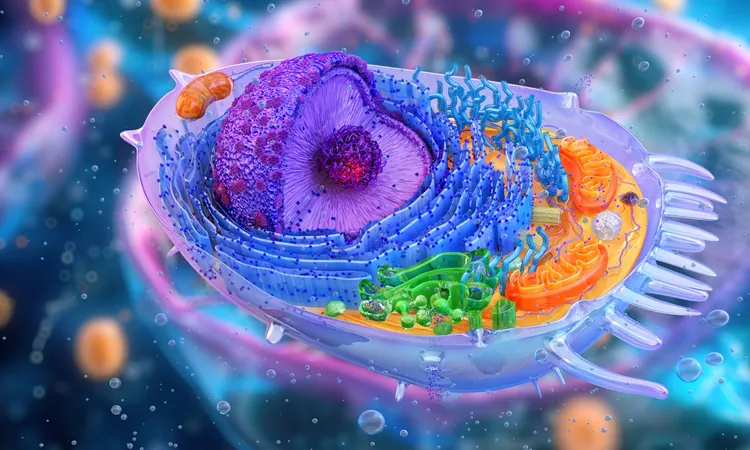
Shocking Study Reveals Antibiotics in Newborns Could Weaken Vaccine Effectiveness!
2025-04-02
Author: Arjun
Introduction
In an eye-opening revelation, new research from Australia suggests that administering antibiotics to newborn babies may lead to weakened immune responses to vaccines during later infancy.
Study Overview
This study, which meticulously tracked 191 healthy infants from birth, indicates that those exposed to antibiotics—whether through direct treatment or via their mothers—exhibited notably lower levels of antibodies in response to vaccines at seven and 15 months.
Findings
Among the babies studied, 111 were exposed to antibiotics shortly after birth: 32 received direct antibiotic treatment, while 49 had mothers on antibiotics during labor, and another 30 had mothers who took them postpartum.
The concerning findings, published in the prestigious journal *Nature*, suggest that those directly treated with antibiotics displayed a reduction in beneficial gut bacteria known as Bifidobacterium, which plays a pivotal role in developing a robust immune system.
Expert Insights
Prof. David Lynn, co-leader of the research and a prominent figure at the South Australian Health and Medical Research Institute, explained that Bifidobacterium thrives in the digestive systems of healthy infants, particularly those who are breastfed.
He emphasized that these bacteria provide an important boost to the immune system, enhancing the body’s ability to respond effectively to vaccinations.
Microbiome Composition
Lynn remarked, “What’s crucial is the composition of the microbiome around the time of vaccination. Antibiotics can disrupt the healthy colonization of bifidobacteria, allowing less beneficial bacteria to take their place.”
Notably, the research also involved studies on germ-free mice, revealing a direct correlation between the presence of Bifidobacterium and improved antibody responses to the pneumococcal vaccine.
Implications
Interestingly, the study found no significant reduction in vaccine responses in babies whose mothers received antibiotics during labor, implying that the direct administration of antibiotics in newborns has a more lasting impact on gut health.
While these findings might raise concerns among parents, Prof. Lynn reassured that there is often a critical need for antibiotics in newborns, particularly to combat serious infections that can occur in those vulnerable early days of life.
He noted, “The treated infants still show decent responses to vaccines. In fact, most reach the protective threshold against infections by seven months.”
Caveat and Future Research
However, there appears to be a caveat: the antibody responses in those treated with antibiotics seem to decline faster over time. The researchers acknowledged the study's modest sample size and noted that it did not account for infants born via cesarean section.
In a bid to enhance vaccine effectiveness, researchers are gearing up for a clinical trial in the coming months, testing whether administering a probiotic containing Bifidobacterium to antibiotic-treated newborns will bolster their antibody responses.
This probiotic, which has been deemed safe, is already in widespread use in hospitals, particularly to prevent necrotizing enterocolitis in preterm infants.
Conclusion
As this groundbreaking research unfolds, it poses crucial questions about the implications of antibiotic use in newborns and the delicate interplay between gut health and immune response.
Stay tuned for more updates on this vital topic!


 Brasil (PT)
Brasil (PT)
 Canada (EN)
Canada (EN)
 Chile (ES)
Chile (ES)
 Česko (CS)
Česko (CS)
 대한민국 (KO)
대한민국 (KO)
 España (ES)
España (ES)
 France (FR)
France (FR)
 Hong Kong (EN)
Hong Kong (EN)
 Italia (IT)
Italia (IT)
 日本 (JA)
日本 (JA)
 Magyarország (HU)
Magyarország (HU)
 Norge (NO)
Norge (NO)
 Polska (PL)
Polska (PL)
 Schweiz (DE)
Schweiz (DE)
 Singapore (EN)
Singapore (EN)
 Sverige (SV)
Sverige (SV)
 Suomi (FI)
Suomi (FI)
 Türkiye (TR)
Türkiye (TR)
 الإمارات العربية المتحدة (AR)
الإمارات العربية المتحدة (AR)